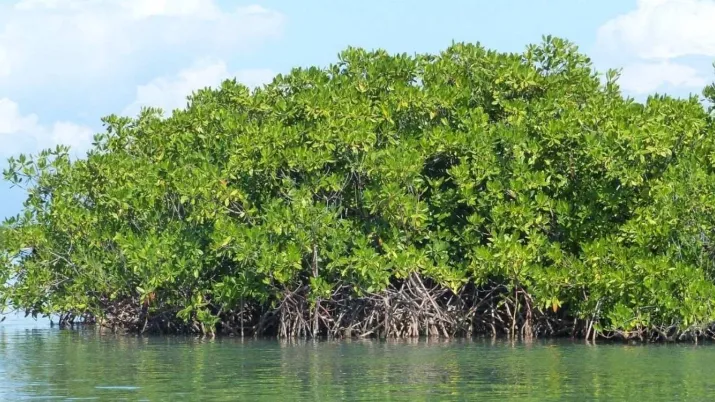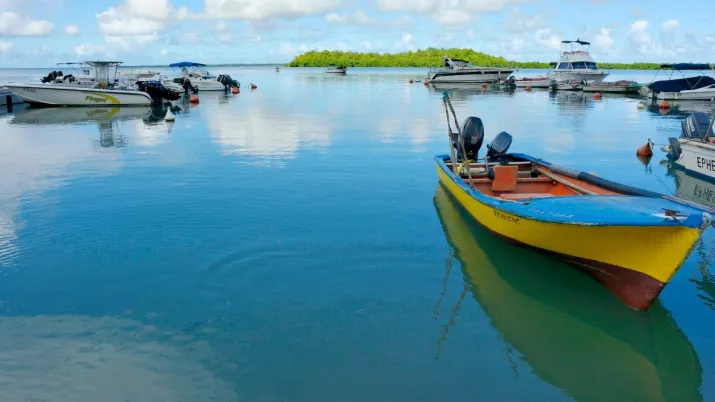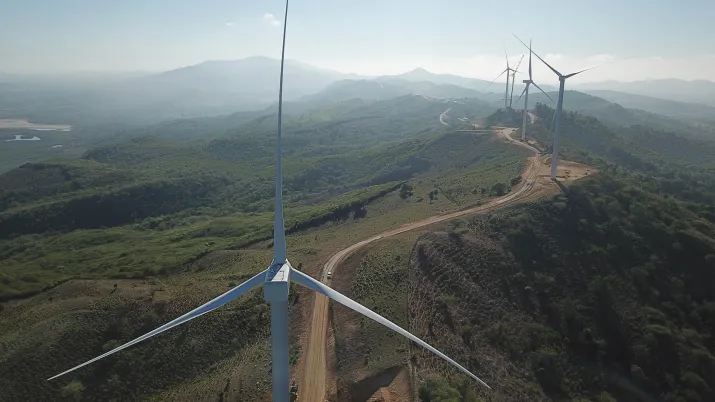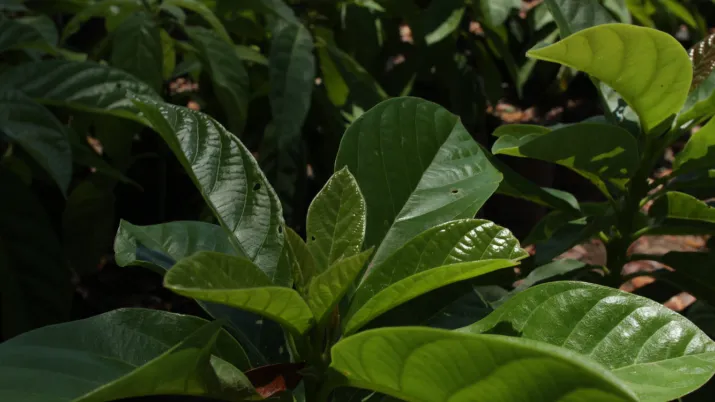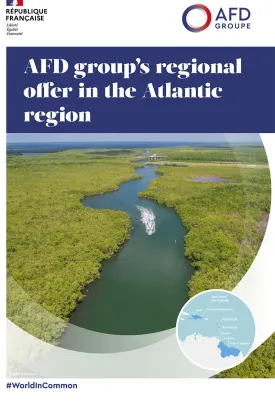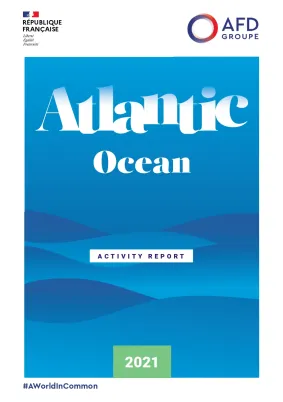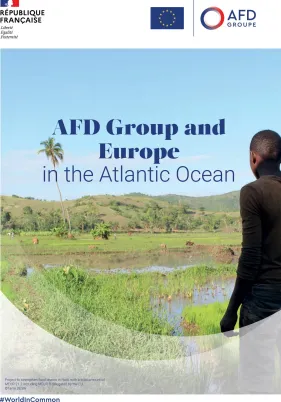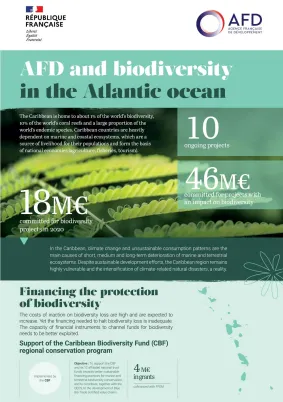Share the page
Dominican Republic
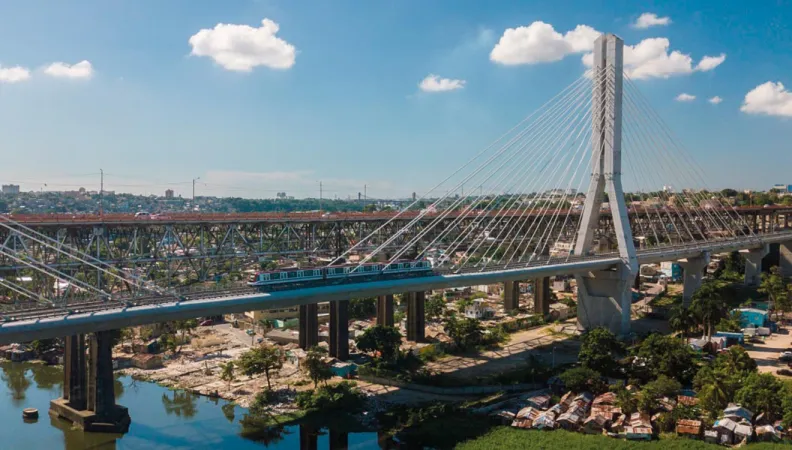
Operating in the Dominican Republic since 1997, and having significantly ramped up its activity there since 2011, AFD is now the country's leading bilateral partner. Its work primarily involves supporting energy, regional, social, and economic transitions.
Alongside its two subsidiaries, Proparco and Expertise France, AFD is supporting the Dominican Republic with the implementation of its 2030 National Development Strategy (NDS), whose main aims are to: strengthen legislation, and social, and democratic institutions; create a society based on equal rights and opportunities; and develop a sustainable, inclusive, and competitive economy that protects the environment while increasing climate resilience.
Context
For around fifty years, the Dominican Republic has been involved in a process of democratization, which has brought political stability to the country, thus leading to economic growth.
Luis Abinader, an economist and businessman belonging to the Modern Revolutionary Party (PRM), has been President since 2020.
With a population of 11.2 million, the Dominican Republic is an upper-middle-income country (UMIC), whose economy ranks among the largest in the Caribbean. With average annual growth of 5% since the 1990s, average per capita income is approaching the regional average. In 2024, it was ranked 82nd on the Human Development Index (compared to 102nd in 2014) and its poverty rate had decreased by 20 points (from 41% in 2013 to 19% in 2024).
Its economy is more diversified but remains highly dependent on the informal sector (at nearly 54.8%), as well as tourism (10% of GDP), remittances from the Dominican diaspora living outside the country (10% of GDP), and the international economy (proximity to the United States, tourism, dependence on fossil fuels).
Aiming to meet the country's major development challenges and advance its 2030 National Development Strategy (NSD), the Group is focusing its work on:
- Supporting territorial, ecological, and energy transitions
- Promoting social transition for more equitable access to essential services
- Supporting economic and financial transition for a sustainable economy
AFD mainly grants sovereign loans at market rates because the Dominican Republic is a UMIC. In the past, it awarded project loans, but has responded to the Dominican government's request to develop public policy loans (FB-PP), targeted program loans, and bank-brokered loans. It also deploys grants, notably though EU-delegated funds (€28 million), or via FAPS and FEXTE.
Our approach
AFD Group and the Dominican Republic: Advancing energy, climate, territorial, social, and economic transitions
Since 2010, AFD has become a leading player in the urban transport sector by leveraging and capitalizing on French expertise in this industry (Systra, Poma, Alstom, Egis, etc.). As a result, AFD financed the development of the Santo Domingo metro network (construction and extension of Line 2 and increase in capacity of Lines 1 and 2) and the first urban cable car line. In recent years, the AFD has granted two public policy loans in the land transport sector, thus strengthening sectoral dialogue with the Dominican authorities. These investments are backed by technical cooperation programs, financed through delegated grants from the European Union, aimed at supporting the authorities to develop policy, planning frameworks, and preparation studies for sustainable transport projects.
Since 1999, AFD has been financing a local development and reforestation project in the mountainous region of Sierra (in the northwest of the country), led by the Dominican association Plan Sierra, in partnership with the Ministry of the Environment and the Ministry of Agriculture. The third phase of this project was launched in September 2019, expanding its scope to include sustainable water resource management (financed through a subsidized sovereign loan of €20 million and a grant of €1.5 million). AFD has also been financing a project to improve sustainable water and sanitation access since 2015, through a $50 million loan. One of the project's key aims is to build the capacities of the National Institute for Drinking Water and Sewerage (INAPA) and CORAASAN, the water utility company responsible for the province of Santiago. In addition to AFD financing, the project has also been awarded a European grant of €10 million from the Carribean Investment Fund (CIF). AFD continues to work in partnership with INAPA, having granted a $100 million sovereign loan for a new project to improve the sanitation network in San Cristobal.
The COVID-19 pandemic exposed certain weaknesses in the country's social security and healthcare systems. Through co-financing with the IsDB, AFD quickly mobilized substantial financial resources, launching a fast-track procedure to grant a €200 million public policy loan and an €8 million European grant (CIF). Expertise France has been responsible for deploying a portion of this CIF grant since 2022. In the healthcare sector, AFD previously financed the CEDIMAT cardiology institute ($18 million), with PROPARCO granting $10 million to modernize the HOMS medical center in Santiago.
AFD also grants financing to civil society organizations, having supported the partnership between the Audition Solidarité and Oir Para Vivir associations since 2020. Their mission is to support and help over 400 vulnerable deaf or hard-of-hearing children to prevent their marginalization.
Its location in the so-called "Hurricane Corridor" exposes the Dominican Republic to extreme weather events linked to climate change, which have a major impact on agricultural yields and coastal erosion, as well as freshwater access. The World Bank Group has estimated that meteorological hazards have caused disaster losses at 0.69% of GDP per year over the period from 1961 to 2014. According to the IPCC, the Dominican Republic's vulnerability to the effects of climate change is increasing over time, with more extreme natural disasters likely to occur more frequently. Through the Ministry of Finance, the Dominican government therefore requested budgetary financing in the form of a public policy loan from AFD.
As part of a co-financing agreement with the Inter-American Development Bank, AFD Group granted the first public policy budgetary financing (FB-PP) for climate reform in the Dominican Republic, to support the national authorities in incorporating climate action into policy areas such as public sector management, land use planning, and energy. Alongside this budgetary financing, technical assistance is being provided to: (i) consolidate public finances for climate change, gender equality, and risk management (budgetary and public investment cycle), (ii) further incorporate these issues into land use planning at a municipal level, in line with the Adapt'Action program (2021), which focused on territorial resilience to climate change, (ii) and support the Dominican Ministry of Energy in achieving a fairer, greener, and more resilient energy transition to mitigate risks and challenges faced by the sector.
In the field
Below, find the country's projects, news, publications, and contact details in one click.
Publications & Media
Key figures
-
Over 1.9 billion euros committed since 1998
-
560,000 tCO2e avoided through projects to develop and modernize the metro
-
More than 95 million trees planted via the Plan Sierra reforestation project

